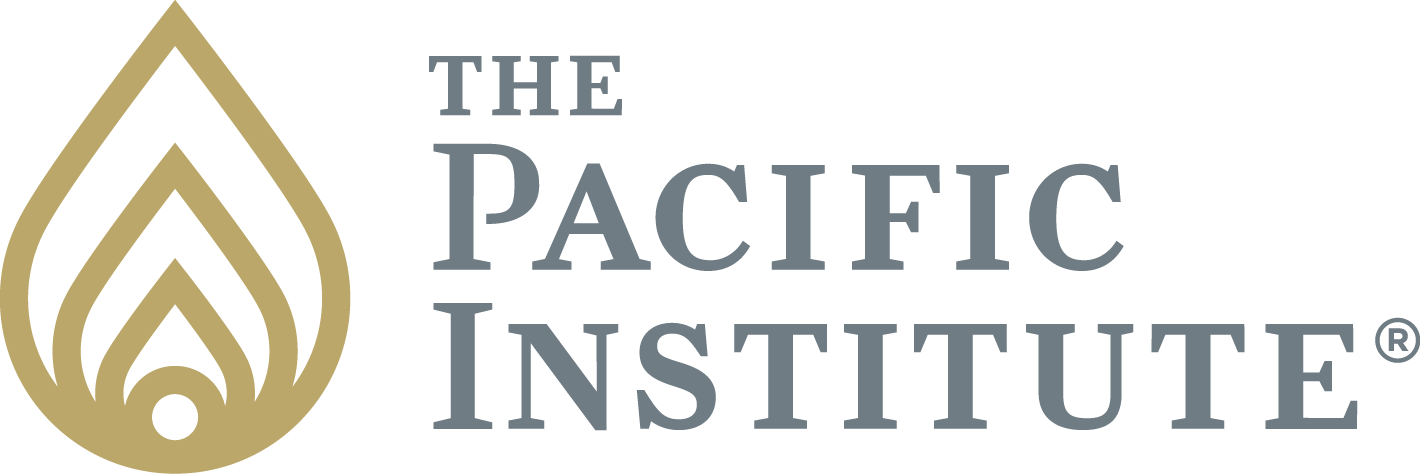Project Description
SNOWFLAKE UNIFIED SCHOOL DISTRICT
Raising Student Achievement

58%
Increase in Jr High
Passing Math Scores
24%
Higher Increase in Scores
than State Increase
BACKGROUND
Snowflake Unified School District, a 2,500 student school district in Northeast Arizona, faced the same dilemma as school districts throughout the country. In November 2002, President Bush enacted the No Child Left Behind Act, which demanded a higher-level of performance from students around the country. The No Child Left Behind Act mandated that 100% of all students must receive passing scores on state administered tests by 2014.
The dilemma faced by Snowflake was how to take a good school district and improve student achievement to meet the ambitious goal established by President Bush. While state testing found student scores at about the state average, the district wanted to ensure that it met the provisions of the No Child Left Behind Act.
“The stakes were being raised by No Child Left Behind. The question was: how do we get the tools and the mindset to [equip] our students, staff and parents to meet that challenge?”
Dr. Gregory Wyman, Superintendent, Snowflake Unified School District
In January 2004, principals from the district’s six schools attended a two-day training of The Pacific Institute’s 21 Keys for High Performance Teaching and Learning™ curriculum in Phoenix, AZ. The level of excitement about the program from the principals indicated that this program might be the solution to improving scores and maintaining a high level of performance.
SOLUTION
In April 2004, forty of the district’s employees went through The Pacific Institute’s 21 KeysTM curricula. Wyman and the district administration had planned to roll out the training to the entire district over the course of next year and a half. However, based on the participants’ overwhelmingly positive response to the program, the decision was made to provide the training to all employees as soon as possible. “It doesn’t matter whether you are a teacher, a custodian or a secretary. If we were going to get all our students to meet the challenge of the No Child Left Behind Act, everyone had to be on the same page,” said Wyman.
Wyman and the district administration worked with The Pacific Institute to train all 285 staff members during that summer. By August, 98% of the district’s employees were trained and twenty-five employees trained as internal facilitators to ensure the principles of the program became part of the district’s culture.
“As a new teacher, affirmations were a key tool in keeping mentally fit, doing my best, and challenging myself. They made me feel like the accomplished teacher that I am.”
Jason Owen, Seventh Grade Language Arts Teacher, Snowflake Jr. High School
OUTCOME
From April 2004 through May 2005, the district collected anecdotal evidence and measurable evidence that helped demonstrate the success of the program. Employees throughout the district reported personal growth in their family life and with their children as they applied the principles of the 21 Keys curricula. In addition, many employees reported positive changes in their work habits and the community commented on the positive changes they observed in various departments and schools.
In June 2005, state test scores reflected the positive impacts of the program on student achievement.Snowflake analyzed the percentage of students passing the state test from 2000 to 2005 and found 3rd, 5th, 8th, and 10th grade students scoring above the state average on eight out of twelve scores in mathematics, reading and writing. “The gains were significant enough that you could not discount that something had been done differently and it was successful,” said Wyman.
“The primary change throughout the district was the implementation of The Pacific Institute’s 21 Keys program.”
Dr. Gregory Wyman, Superintendent, Snowflake Unified School District
The detailed analysis of mathematics scores revealed that Snowflake Junior High School showed a 58% increase in the number of students receiving a passing score on the state test from the prior year. While a change in the test contributed to some of the increase, the school had a 24% higher increase than the state.
The district’s 3rd grade students showed a 19% increase, 12% better than the state increase.
Ninety percent of 10th graders received a passing score in reading in 2005, a 28% increase from the previous year. Meanwhile, state scores increased by 12%, with only 71% of 10th graders receiving a passing score. Snowflake 8th graders showed a 30% increase, while the state increase was 13%.
The Snowflake also had a greater percentage passing 3rd and 5th grade students than the state.
Thirty percent more 10th graders passed in writing, while the state saw a 9% increase. Eighth graders scored 11% higher than the state average and 3rd graders scored 13% higher than the state.
According to Wyman, all of these positive results are maintained when comparing the 2005 scores over the past five years.
At Snowflake Jr. High School, Owen attributes this to “positive self-talk about our school, students, and faculty. The result is that we have fewer major discipline problems, higher student participation and success, a faculty that is setting new visions almost weekly and an environment that is primed for continual success.”
“Our goal is to have all of our kids reaching or exceeding state and federal standards by 2010,” said Wyman, who is looking to beat No Child Left Behind’s goal of 2014.
“We believe 21 Keys™ helped establish expectations and had a significant impact on these results.”
Dr. Gregory Wyman, Superintendent, Snowflake Unified School District
SUSTAIN
Wyman and administrators from around the district created a five-year plan based on the principles learned in The Pacific Institute’s 21 Keys program. The plan includes regular retraining and follow-up sessions.
In addition, the plan used The Pacific Institute’s education outside the classroom, getting community leaders, town council members and parents involved. “We’ve had numerous short-term goals that we’ve accomplished since starting the training, but we’re striving to set in a thought-process that allows for us to reach our long term goals,” said Wyman. “I believe that if Snowflake can get staff, students, parents and the community applying these same principles, setting higher expectations and working together, meeting the mandate from the No Child Left Behind Act will be no problem.”
In addition to meeting state and federal testing standards, Snowflake is working with The Pacific Institute to create their ideal school district.
“21 Keys has changed the way that Snowflake approaches education. We are positive about education because we are committed to raising the bar, working to achieve the bar, and raising it again, which will make Snowflake Unified School District continually successful.”
Jason Owen, Seventh Grade Language Arts Teacher, Snowflake Jr. High School



